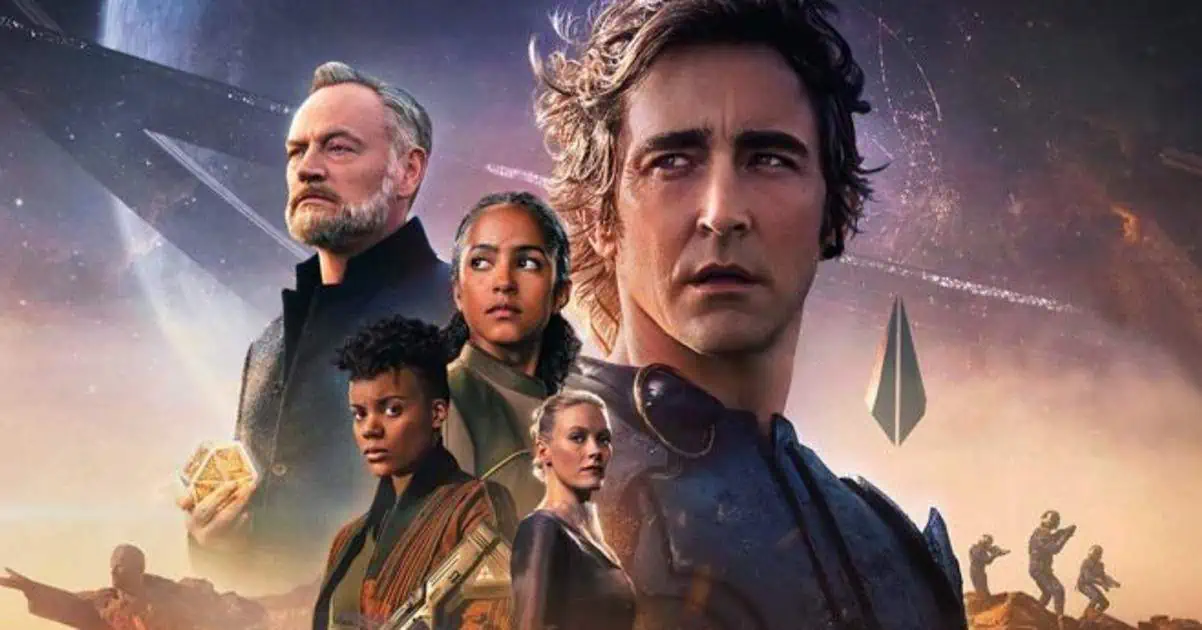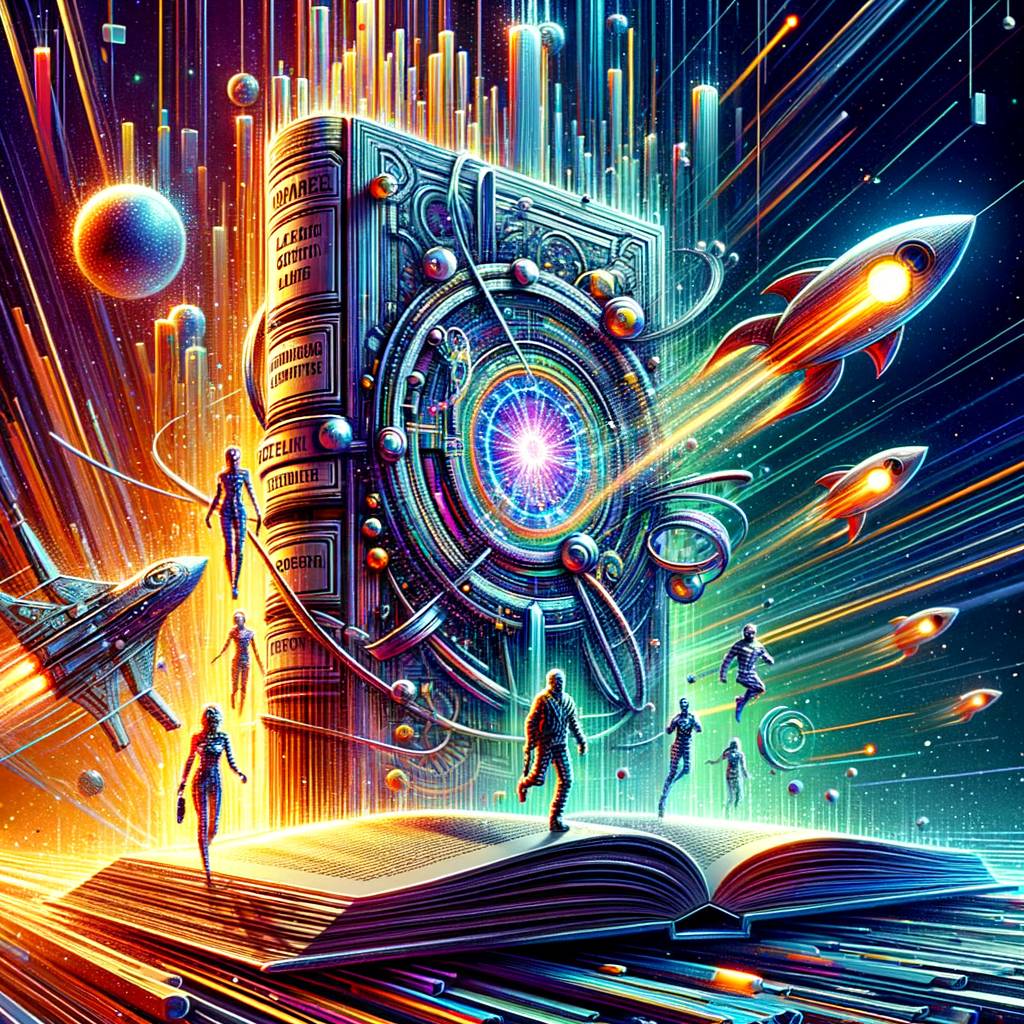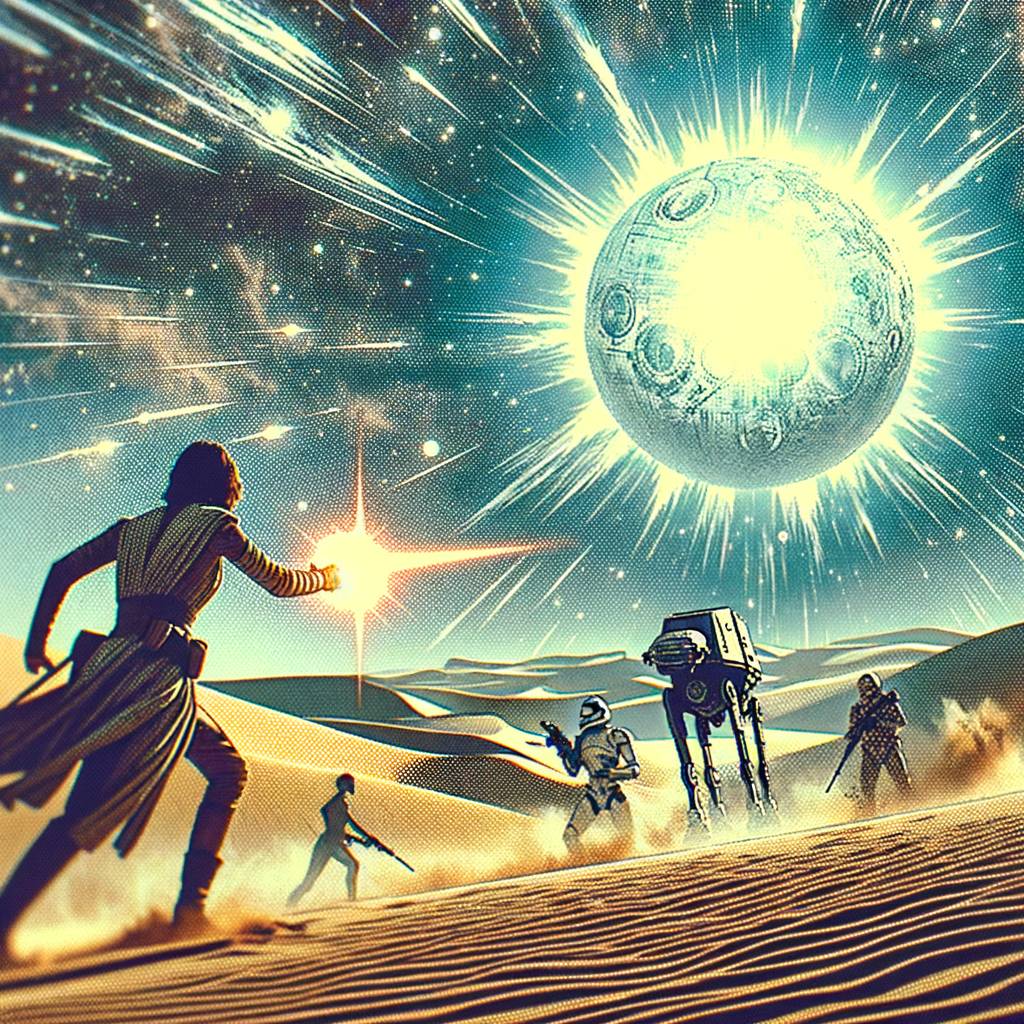In the vast expanse of science fiction literature, certain gems shine with an intensity that captivates and enthralls readers, transcending even the celebrated classic, Isaac Asimov’s “Foundation.” This blog post delves into nine such marvels, each heralded for its unique contribution to the genre, surpassing “Foundation” in the eyes of Goodreads users.
The Long Way to a Small, Angry Planet by Becky Chambers
Release Date: 2014
Becky Chambers crafts a vibrant tapestry of interstellar travel in “The Long Way to a Small, Angry Planet.” This novel stands out for its profound exploration of diversity and relationships within the crew of the Wayfarer. Chambers’ ability to weave complex characters and societies into a narrative that is as heartwarming as it is thought-provoking sets this book apart.
Old Man’s War by John Scalzi
Release Date: 2005
“Old Man’s War” introduces readers to a future where the elderly are recruited for interstellar battles, offering a poignant commentary on aging, the essence of humanity, and the price of intergalactic colonization. Scalzi’s blend of humor, action, and ethical dilemmas ensures this novel’s place as a standout work.
Pandora’s Star by Peter F. Hamilton
Release Date: 2004
Spanning a complex and richly developed universe, “Pandora’s Star” embarks on an epic tale of exploration and intrigue. Hamilton masterfully crafts a story that combines the mystery of a vanished star with political and scientific depth, challenging readers to ponder the ramifications of human expansion and the unknown.
House of Suns by Alastair Reynolds
Release Date: 2008
Alastair Reynolds’ “House of Suns” presents a grand narrative of galactic scale, exploring themes of memory, time, and identity across millions of years. The novel’s intricate plot and the concept of shatterlings offer a fresh perspective on immortality and the cyclic nature of civilizations.
Hyperion by Dan Simmons
Release Date: 1989
“Hyperion” is a masterpiece of narrative depth, combining the structure of “The Canterbury Tales” with the expansiveness of space opera. Simmons’ work is celebrated for its rich storytelling, complex characters, and the enigmatic Shrike, making it a profound contribution to science fiction literature.
Leviathan Wakes by James S.A. Corey
Release Date: 2011
As the inaugural entry in “The Expanse” series, “Leviathan Wakes” is a thrilling blend of noir detective story and space opera. Its exploration of political intrigue and human survival in the solar system provides a gripping narrative that resonates with contemporary issues.
Children of Time by Adrian Tchaikovsky
Release Date: 2015
“Children of Time” is an imaginative leap into the evolution of intelligence, posing philosophical questions about progress, coexistence, and the nature of civilization. Tchaikovsky’s ability to craft a compelling story where spiders become the dominant species is both innovative and reflective.
Ender’s Game by Orson Scott Card
Release Date: 1985
Orson Scott Card’s “Ender’s Game” combines military strategy with deep emotional and ethical considerations. The novel’s exploration of leadership, sacrifice, and the cost of war through the eyes of a child prodigy offers a poignant critique of violence and power.
Dune by Frank Herbert
Release Date: 1965
“Dune” is not just a novel; it’s a monumental saga that examines themes of power, religion, and ecology within a meticulously crafted universe. Herbert’s vision of a desert planet with its complex socio-political dynamics and the messiah figure at its center, is a masterclass in speculative fiction that has inspired generations.
These nine books, each a beacon of excellence in the realm of science fiction, offer varied and profound experiences that transcend the legacy of “Foundation.” Through their exploration of complex themes, innovative narratives, and immersive worlds, they not only entertain but provoke thought, challenge perceptions, and celebrate the boundless imagination that science fiction provides.
To delve into each of these masterpieces is to journey through the depth and breadth of human creativity, each book a universe unto itself, rich with ideas that resonate long after the final page is turned. Whether you are drawn to the intricate character dynamics of “The Long Way to a Small, Angry Planet,” the philosophical musings of “Children of Time,” or the epic scope of “Dune,” these novels are testament to the enduring power and potential of science fiction to explore the unknown, challenge the status quo, and envision the future of humanity among the stars.



